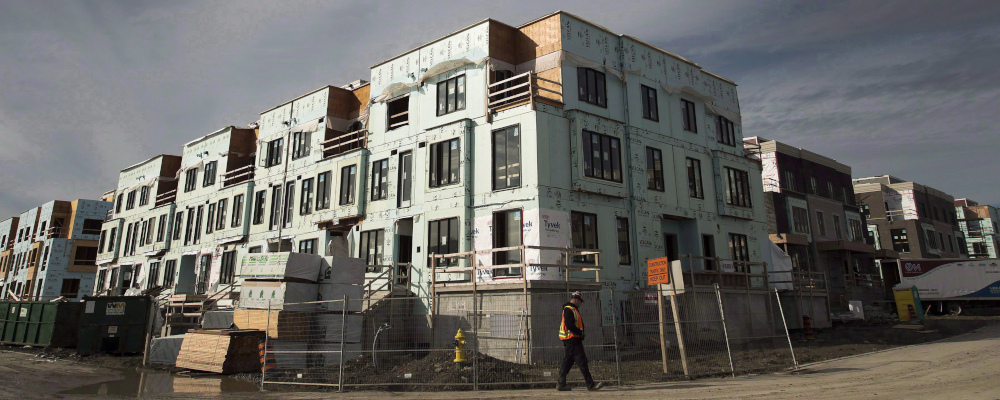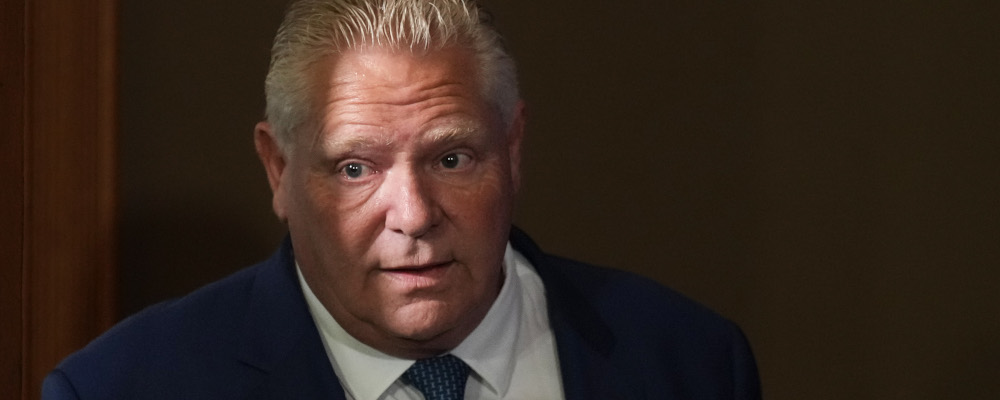“Guns blazing” might have been the best way to describe Doug Ford at the beginning of his term as Ontario premier in 2018. Among many policy priorities at the time, his ardent supporters seemed most excited by his willingness to shake up Toronto politics forever by cutting the size of city council in half and giving strong powers to the office of mayor—both incredibly controversial moves that had him labeled as an enemy of democracy in the eyes of some but a champion of progress for others.
Although these two policies were welcomed by conservatives in particular because they aimed to dramatically reduce gridlock at Toronto City Hall, it was really the temperament behind these moves that stood out most. We finally had a leader in Ontario who wasn’t afraid to kill sacred cows in an effort to make the province function again. Political consequences be damned.
Today, in 2024, that version of Premier Ford doesn’t seem to exist anymore. Instead, in the midst of a severe national housing crisis—disproportionately caused by decades of bad policy in Toronto and Ontario—Ford has lost his reformist zeal. He’s become a status quo politician.

Although no leader wants to govern through a crisis, this one presented a unique opportunity for a conservative premier in Canada’s largest province. Long before Pierre Poilievre became the champion of housing in Canada, the mantle was Ford’s for the taking. After all, he was the premier who first started talking about the need to accelerate housing completions in Canada—a big part of the motivation behind his dramatic moves to change Toronto City Council; the premier who appointed an ambitious Housing Affordability Taskforce to make recommendations to the province on immediate actions to take; and the premier who has promoted several significant pieces of housing legislation since coming into office.
But in all of this, he’s ultimately refused to go beyond words. The facts regrettably speak for themselves: It’s more expensive today to build housing in Toronto than when Ford became premier; the long-awaited Housing Affordability Taskforce report has substantively been collecting dust on a shelf; the housing laws that have passed in the Ontario legislature have had marginal, if any, effect on housing completions; and just last week, the premier reaffirmed his NIMBY credentials by shutting down a proposal that would have allowed gentle intensification of neighbourhoods across the province—a policy that is now supported by the province’s other political parties (a fact that in and of itself would normally have me thinking the other way).
In 2021, the Ford government announced its target to see 1.5 million new homes built in Ontario by 2031. It was a target that was arguably too low to account for recent immigration trends. But it was something. It certainly reflected a level of ambition that far exceeded recent history.
Reaching the target however required leadership. The real estate development industry for instance soon concluded that it was effectively impossible without immediate and significant changes to land use policies—many of which were recommended in Ford’s own Housing Affordability Taskforce report.

To date, almost three years into government’s own 10-year goal, no such substantial policies have been enacted and the province is well behind its target of 150,000 new homes per year. To get ahead of its obvious underperformance, it’s now starting to add long-term care beds and finished basement units in the province’s math for housing completions. But bogus accounting is no substitute for leadership.
Although not a comprehensive solution to the crisis and of itself, last week’s announcement that Ford would never support fourplexes in neighbourhoods across the province demonstrated that he is unwilling to make the difficult (and sometimes politically unpopular) decisions needed to address the magnitude of this housing crisis.
This week, along with the province’s budget, we expect to hear from Ford’s housing minister, Paul Calandra, on the government’s renewed housing policy agenda, but already the rumours are circulating that the minister’s housing ambitions have been significantly watered down since going to cabinet and the premier for approval.
All of this has been disappointing to watch unfold. Today, I write this article reluctantly. I once held this government and this premier in high regard and I continue to be a card-carrying member of the PC Party. But now, more importantly, I’m a member of an overlooked generation. I’m 36 years old, I have two children and I live in Toronto. The cards are getting stacked against Ontarians like me. The Ford government’s anti-reform agenda—its protection of the status quo—has done nothing to change that for me and my family.




